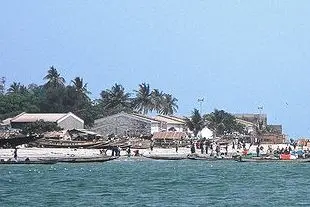Gambia’s new Banjul Fisheries Jetty has been commissioned by the country’s vice president and minister of women’s affairs, Isatou Njie-Saidy
The new Jetty, worth US$8.5mn, is located at Wharfi Njagor and is among the Gambian sub-projects sponsored by the African Development Bank (AfDB) alongside the Arab Bank for Economic Development in Africa (BADEA), and was co-ordinated by the Gambia Artisanal Fisheries Development Project.
The Gambia Ports Authority has meanwhile been entrusted to manage, operate and maintain the facility on behalf of the country’s Ministry of Fisheries and Water Resources.
In her inaugural statement, Njie-Saidy said the government is determined and highly committed to ensuring that all the major artisanal fish landing sites within the country are provided with the necessary infrastructure facilities, fishing and fish processing related equipment and means for fish distribution and marketing throughout the country.
Njie-Saidy said, “In this regard, it is gratifying that fish production is increasing while post-harvest losses are decreasing and high quality fresh and processed fish products are available for consumption at relatively affordable prices.
“The need for adequate national fishing trawlers to constitute a national fishing fleet for fishing that would enhance the availability of fish in The Gambia cannot be overemphasised,” she added.
The vice president indicated that recent statistics suggested fish stocks are in continuing decline. This, she explained, is partly due to over-fishing, which is aggravated by the use of inappropriate fishing methods.
To this end, she called on players in the fisheries sector to continue strengthening the existing surveillance system and to apply robust strategies to address illegal fishing.
“All patriotic Gambians should also join the bandwagon in this endeavour. I call on the communities to be watchdogs and be vigilant in addressing the problems so that we can optimally and judiciously utilise this precious resource and also preserve it for future generations,” Njie-Saidy said.





